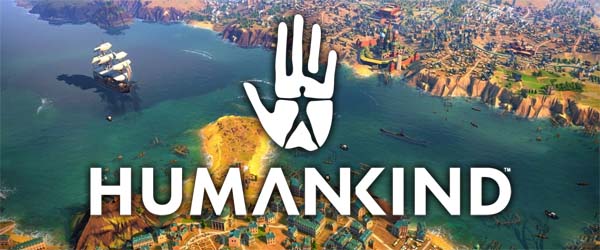
It's going to be virtually impossible to review Humankind without frequently comparing it to iterations of Sid Meier's Civilization. Civ has absolutely dominated (and almost completely monopolized) the historical turn-based strategy genre. There have been plenty of space and sci-fi-themed 4x strategy games, ranging from Master of Orion, to Galactic Civilizations, to Stellaris, and even Amplitude's own Endless Space; but not a whole lot in the more Earth-bound sub-genre. I've also been a huge Civ fan (as the readers of my blog can no doubt tell), so it's hard for me to look at any game in this genre and not partially judge it through the lense of comparing it to Civ.
So I'm not even going to pretend to judge Humankind strictly on its own merits, in a vacuum. I simply can't. I'm not sure if anyone can. Amplitude, as a company, clearly looked to Civ for inspiration, took lessons from the successes and failures of its previous strategy games, and said "hey, we want a piece of that pie too." But despite the surface-level comparisons to Civ, Amplitude takes a very different approach to game design. While Civ has always been very firmly rooted as a "digital board game", Humankind takes a much more story-driven and "simulationist" approach, akin to the sort of thing that you might see in a game like Crusader Kings. I think this approach works, and it does a good job of separating Humankind from Civilization.
Culture wars
Perhaps the biggest deviation that Humankind makes from Sid Meier's Civilization is the way that it handles the game's civilizations themselves. In Humankind, you don't play as a single civilization throughout an entire campaign. Instead, each era you have the opportunity to select a new culture from a list of era-specific cultures. I like this concept a lot in principle, but also have some misgivings about the way it works out in practice.
Empires transition into a new culture at the start of each era.
On the one hand, it's great to see a game like this recognize the fact that civilizations aren't singular, monolithic cultures that exist forever, unless they are conquered or die off completely. That gaming paradigm (which Civ has always embraced) ignores the reality that cultures change and evolve over time. They change with the times, and blend elements from other neighboring cultures. And even if a nation or empire falls or collapses, it doesn't just disappear off the face of the planet overnight. It's people get absorbed into whatever nation or empire replaces it, and those people continue to influence the development of that new culture.
But this isn't exactly how Humankind works. The cultures of the game don't gradually transition or evolve due to social, economic, political, or geographic pressures and influences. Instead, at arbitrary points throughout the game, each empire completely changes its culture in a single game turn. And you aren't locked into choosing a related or similar culture either. You can pick any culture that is still available from the given era, no matter how separated that new culture might be from your old culture -- whether that be geographic separation, ideological separation, or even racial separation. I can be Greek one turn, and then suddenly be Aztec the next, and be Khmer the following era.
I was hoping for a system in which players would have to select from a list of related cultures when transitioning into a new era. For example, I was imagining that being Classical Romans means that, when the medieval era hits, I would have to chose between a related culture like Byzantine, Holy Roman, Ostrogothic, Franks, or Papal States. Then, depending on which I picked, my culture would continue to shift to another related culture in the following era. For example, if I picked Byzantine as my medieval successor to Rome, then my early modern culture choices would be things along the lines of the Ottomans or Orthodox Rus; whereas, if I had gone with the Papal States or Holy Roman Empire, then my choices would be things like Venetian, German, or French.
Changing cultures each era is no more silly than ancient
Abraham Lincoln leading ancient America in a bear-skin hat.
Instead, these transitions from one culture to another over the span of a single turn can be very jarring in Humankind. But I guess it's no less jarring than seeing an ancient era Abraham Lincoln leading America in 4000 B.C.E. while wearing his silly bearskin tophat.
I hope that if Humankind gets expansions, that those expansions will modify this culture-changing mechanic so that there are more cultures available each era, but your choices are limited to cultures that are related to the one you were playing in the previous era. Maybe it costs influence (or maybe even fame) to change cultures, and changing to an un-related culture costs more than changing to a closely related one. I know it can be difficult to find such examples of related offshoots for every possible culture, especially for cultures that were conquered or died off in real life, but I think it's a solvable problem.
It's easy to come up with possible successors to the Roman Empire, because every culture in Europe and Asia Minor seemed to claim succession from Rome. It's a lot harder to come up with related successors to culture like the Aztecs or Maya, and it would seem insensitive or outright offensive to limit the choice of succession to the colonial European cultures that had conquered or massacred them in real history. But there are options. In the case of the Maya or Aztecs, successor options could include cultures like the various Pueblo or Navajo cultures, but I admit that's kind of a stretch.
[More]